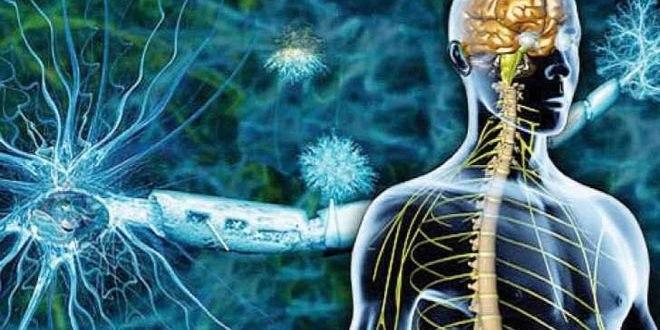Damascus, SANA- More than 2.3 million people worldwide suffer from MS, or multiple sclerosis, which is one of the most common diseases in the central nervous system with a higher peak occurring between ages 20 and 40 years and is more in women than men.
The World MS Day which is celebrated on May 30th, is considered as an occasion to highlight the needs of the people with MS in a healthy lifestyle and psychological and moral support to control the symptoms of the disease and coexist with it, according to Head of the Chronic Diseases Department at the Ministry of Health Dr. Rania Shifah.
In a statement to SANA, Dr. Shifah added that the Ministry provides free treatment services that include diagnosis, follow-up and treatment according to standardized drug treatment protocols for 2,600 patients with sclerosis across 6 centers in Damascus, Aleppo, Homs, Hama, Lattakia and Tartous provinces.
Dr. Shifah pointed out that all data related to patients with sclerosis have been recently completed with the aim of determining the pharmacological need and the progression of the disease according to the age group and geographical location, noting that the spread of the disease in Syria is according to the internationally accepted ratios.
She pointed out that with the outbreak of the Coronavirus and the risks it carries for people with chronic diseases increase the severity of symptoms of infection with them as the department has published brochures and awareness letters for those patients because they have weak immunity, including sclerosis patients, in terms of adhering to a high degree of precautionary measures to address the virus, including continuous sterilization, avoiding crowds, wearing masks, and contacting medical teams if they have any symptoms to receive the appropriate service.
Head of the Syrian Association for Neurosciences, Dr. Anas Jawhar said that the MS is an autoimmune idiopathic disease that causes an imbalance in the immune system and a number of environmental, genetic and nutritional factors play a role in the incitement of its occurrence and its incidence rates vary from one country to another where it ranges from 1 to 2 per thousand and is more frequent in the northern regions of the world because people there are less susceptible to the sun as the incidence of the MS is largely related to vitamin D deficiency, as well as the difference in dietary pattern between countries.
Sclerosis is accompanied by a wide range of symptoms, the most common of which is fatigue in addition to signs including blurred vision, weak limbs and a sense of tingling, according to Dr. Jawhar.
He pointed out that there has not been yet a treatment for it, but recent scientific developments have produced modified treatment measures for the course of the disease and its symptoms, indicating that with continued scientific and research developments in this field, which have succeeded in setting up remedial measures that have supported the remodeling of the immune system as it is possible for the patient to reach a full recovery.
In view of the risks of immunodeficiency in increasing the risk of infection with the Coronavirus, Dr. Jawhar called on patients with MS whose treatment include immunosuppressive drugs, to strict adherence to precautionary measures to prevent infection with the novel coronavirus, indicating that these risks are reduced in patients who depend on their treatment on immunomodulatory drugs only.
Dr. Jawhar pointed out that the Syrian Association for Neurosciences launched in cooperation with the Syrian Society for Supporting Multiple Sclerosis Patients last November the first day of MS in Syria with the aim of increasing support for the patients and creating awareness about the MS as one of the chronic diseases to reach an early diagnosis and treatment and an optimal social care.
explaining that The World Federation for Multiple Sclerosis launched the motto “we communicate to continue” and set the period from 2020 to 2022 to highlight the social obstacles that make people with MS feel lonely and socially isolated and to ensure that they get better services in terms of medical and social care.
Ruaa al-Jazaeri
 Syrian Arab News Agency S A N A
Syrian Arab News Agency S A N A
